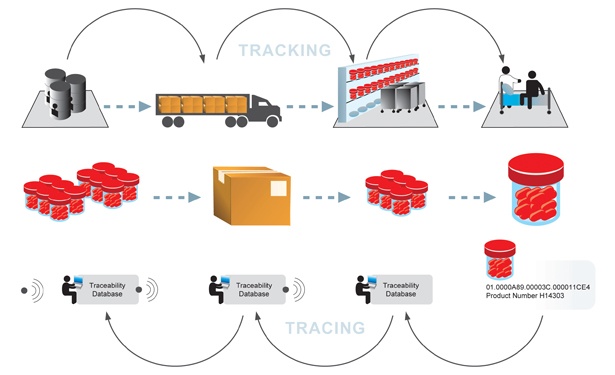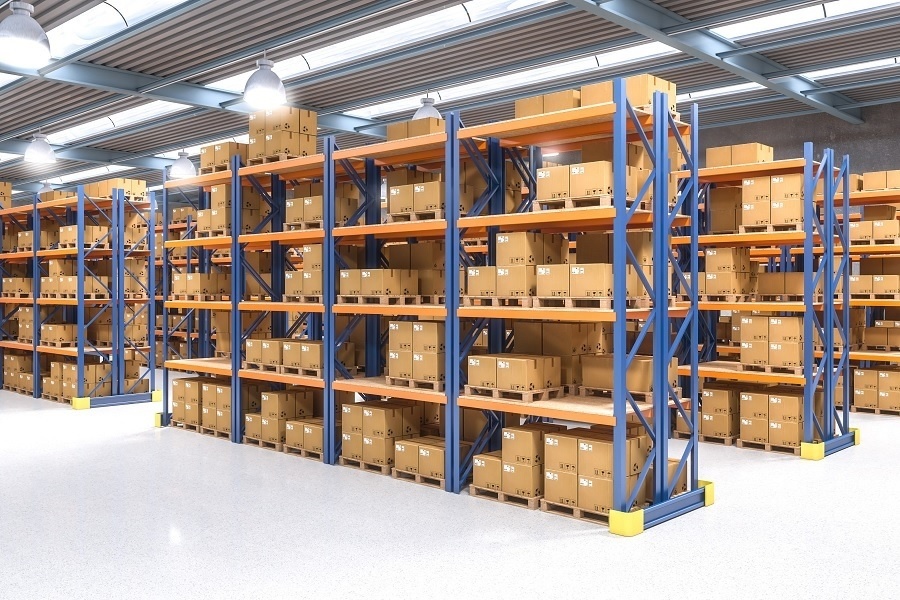Every industry relies on an efficient supply chain to run smoothly, and healthcare is no exception. In 2020, we saw firsthand how weak links in a healthcare facility’s supply chain could lead to major shortages of essential supplies, like medications and personal protection equipment. So, it’s more important than ever for facilities to find new healthcare supply chain solutions, such as optimizing their relationships with third-party warehouses.
Below, learn more about the role of warehousing in healthcare supply chain strategy, and discover the benefits of working with a third-party logistics provider. Plus, discover a Rhode Island warehouse ready to work with you.
What’s the importance of supply chain management in healthcare?
A supply chain is a network of “physical and informational resources required to deliver a good or service to the final consumer.” It encompasses every step in the process, from manufacturing items to delivering them to their final destination. In the healthcare industry, the goal of medical supply chain management is to identify any weak links in the chain and find solutions for them before they become widespread problems.
Healthcare supply chain models
There are several different players in the healthcare supply chain. Some of the major entities include:
- Manufacturers, which create medical supplies and equipment, like medications, bandages, PPEs, or diagnostic tools. They may wholesale the finished products directly to a healthcare facility, or work with third-party distributors.
- Distributors, which purchase medical supplies in bulk to distribute to healthcare facilities. They sell around 92% of all prescription medications in the industry.
- Third-party logistics companies (3pls), which act as intermediaries in the supply chain. They most commonly store inventory at distribution warehouses and make local deliveries. Some 3pls may also work with manufacturers and act as distributors for healthcare supplies.


What’s the role of warehousing in healthcare supply chain strategy?
Warehouses serve as hubs in a healthcare supply chain, storing items temporarily and coordinating their delivery to facilities, like hospitals and pharmacies. While some healthcare facilities may choose to own or operate their own warehouses, the potential benefits of working with a third-party warehouse include the following.
Tracking and managing inventory
In healthcare facilities, overstocking items could lead to products expiring, while understocking could cause a shortage of life-saving equipment. However, working with a warehousing partner could mean more efficient inventory management.
Warehouses can provide a consistent supply of items as healthcare facilities need them, which can free up on-site storage space and prevent overstocking. What’s more, most warehouses implement a warehouse management system (WMS) to electronically track inventory. So, you can have a quick snapshot of all your supplies inside the warehouse and know when to restock.
Following healthcare supply chain regulations
The Food and Drug Administration (FDA) has a broad set of rules for the storage of pharmaceuticals, like providing adequate climate and humidity control and implementing security measures, like alarm systems.
A pharmaceutical warehouse follows these regulations closely, which ensures that crucial medications are up-to-date and safe to use. What’s more, with your WMS tracking inventory, you can stay aware of batch numbers for potential recalls of pharmaceuticals in your supply chain.
Reduced risk
A third-party warehouse could also help you reduce risk in your healthcare supply chain. For instance, 3PLs may have contingency plans for emergency scenarios, like natural disasters or healthcare supply chain interruptions. This can allow them to quickly pivot and ensure continuous supply to a healthcare facility without interruptions.
Additionally, most warehouses have their own security systems to monitor and prevent loss, which could help reduce theft risk for valuable equipment.
Faster delivery times
In the healthcare industry, prompt delivery times are especially crucial. Many third-party warehouses also act as distribution centers, allowing them to load supplies onto trucks and ship them out for immediate delivery to a healthcare facility. This can help get your essential supplies on the road faster and minimize delays.
Cost-effectiveness
Working with a third-party warehouse may help you save money on your supply chain management. You don’t need to allocate funds to managing your own storage facility or training specialized staff. Instead, you can take full advantage of the third-party warehouse’s expertise and local connections to enjoy cost savings on healthcare storage solutions.
What’s more, a third-party warehouse also allows flexibility for scaling. You can lease more or less storage space for supplies according to your facility’s needs without making a major investment in a self-operated storage center.
A New England Warehouse for your needs
If you’re looking for a warehouse in the Rhode Island area, N&D Transportation is here for you. Our New England warehouse provides racked, heated, and organized storage to hold supplies for as long as you need them. What’s more, a full fleet of over 100 owned vehicles allows us to get supplies on the road as soon as possible. We also offer direct distribution services throughout Rhode Island and the New England area for maximum efficiency. Contact us today to learn more about working with us to streamline your healthcare supply chain.



